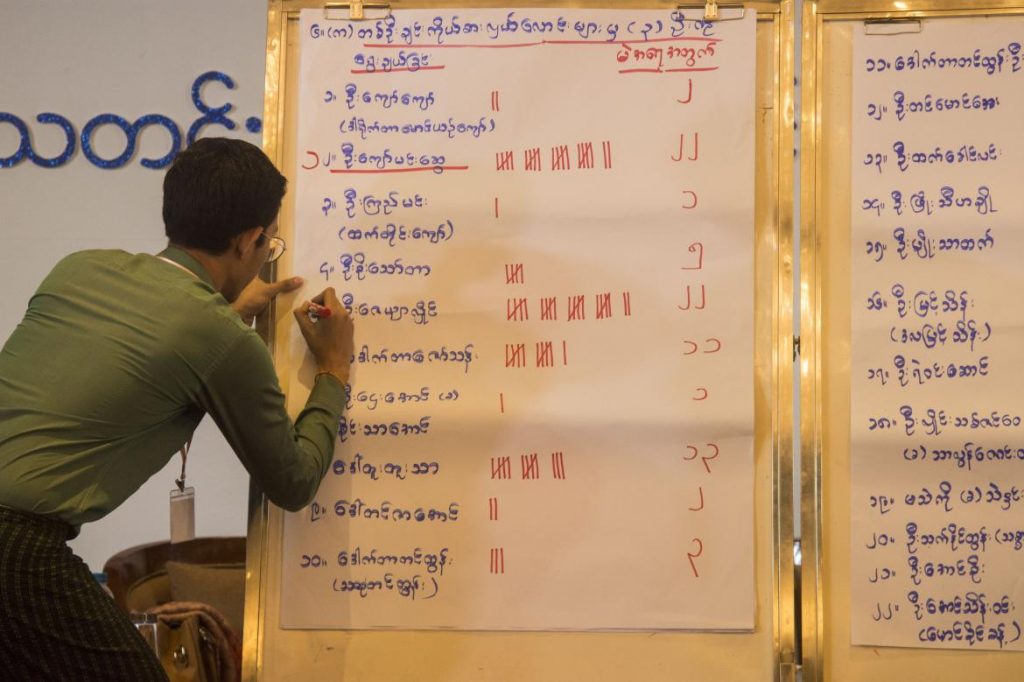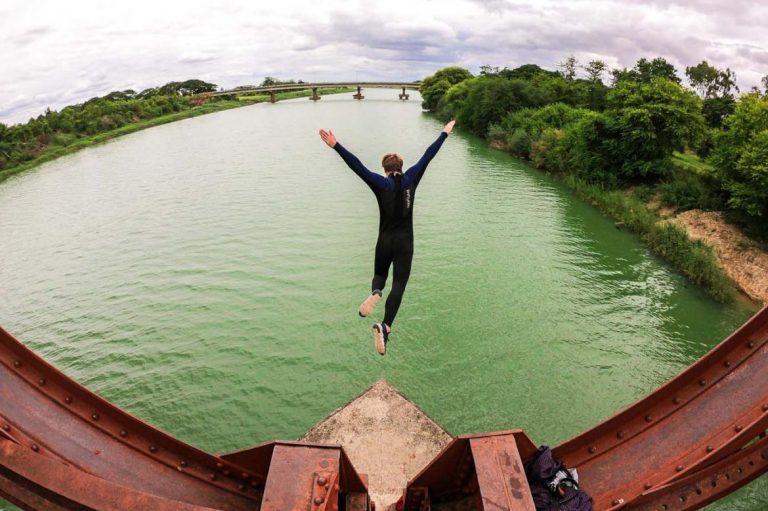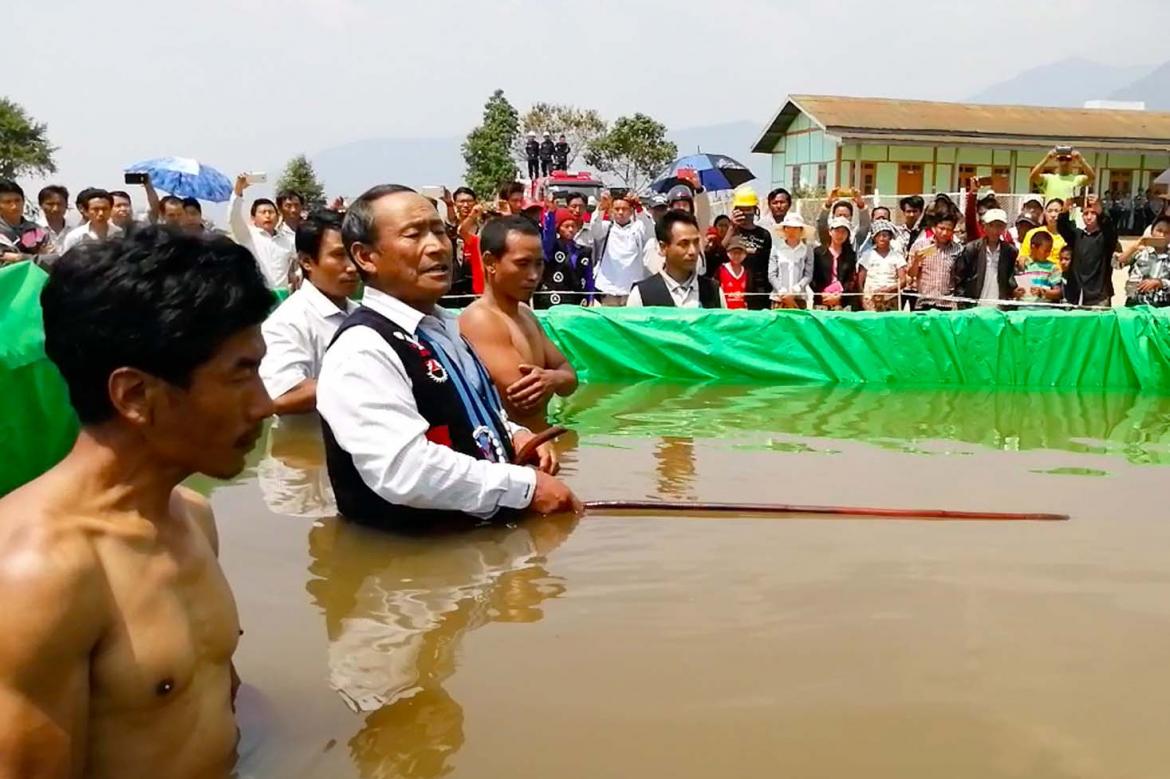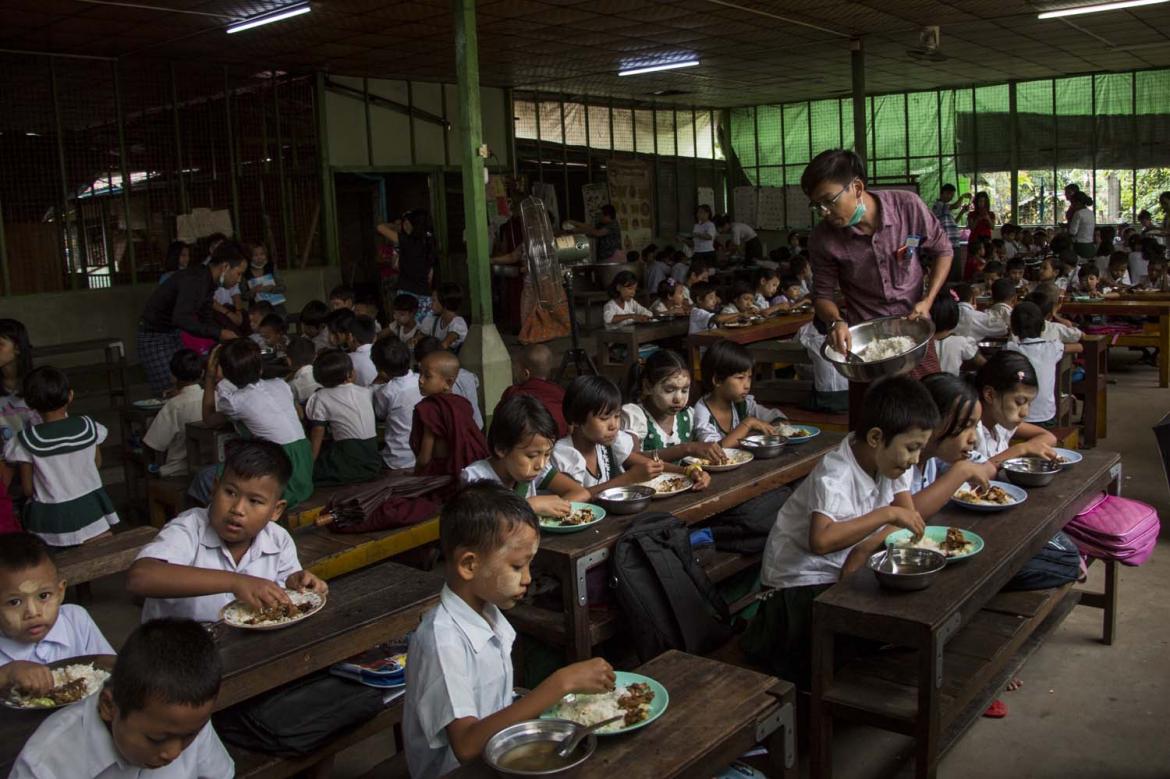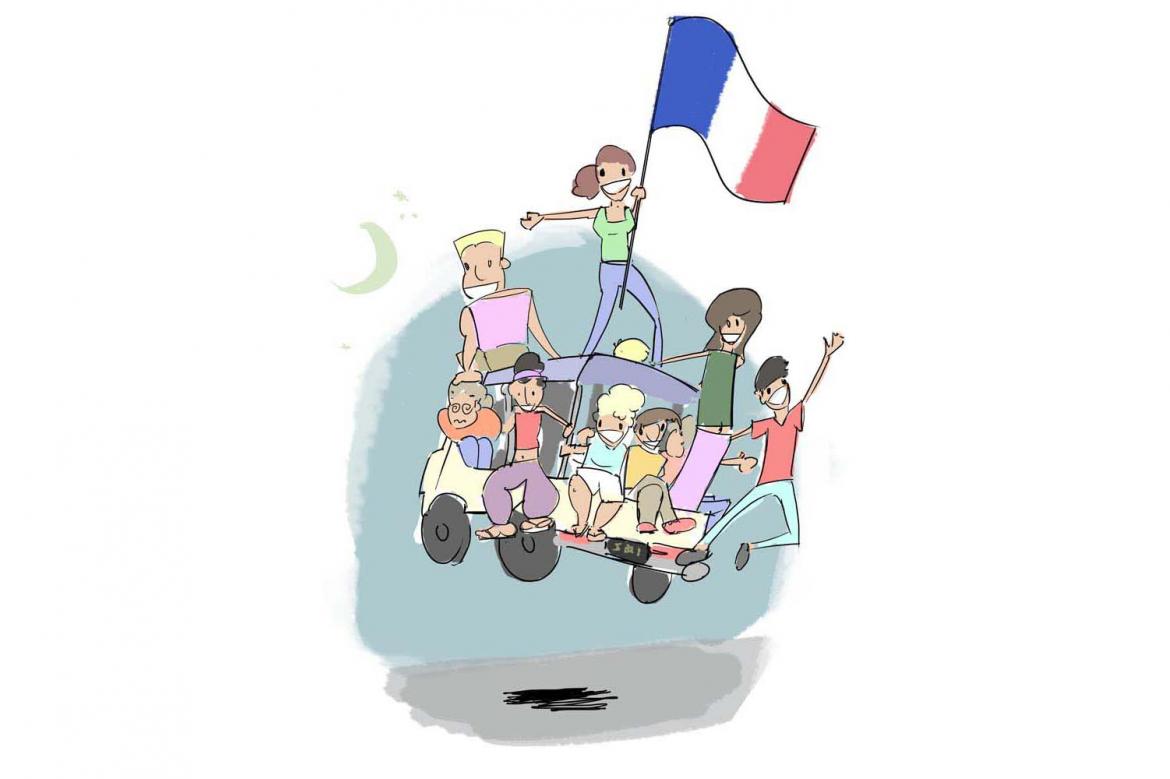By YE MON | FRONTIER
Nineteen members were elected to sit on the new Myanmar Press Council on August 18, as the body seeks to rebuild its credibility following accusations it has failed to protect journalists and media freedom.
Once the results are confirmed – a process that is likely to take a week – the members will elect a chair and secretary, after which the mandate of current members will end. The newly elected members will serve three years on the council.
Daw Thu Zar, who was nominated to represent the Myanmar Women Journalist Society, said that the new council should ensure amendments to the News Media Law are enacted and campaign more strongly for the release of Reuters journalists Ko Wa Lone and Ko Kyaw Soe Oo, who have been detained under the Official Secrets Act since December.
“I hope the new council will be different to the previous council,” she said. “We will do the best we can.”
Support more independent journalism like this. Sign up to be a Frontier member.
The election saw strong intergenerational competition between the older journalists and editors, who hold most positions on the council, and younger journalists who have accused it of failing to protect journalists from arrest and imprisonment. To be eligible for election, candidates must have 10 years of experience in the media industry.
Among the younger generation who were elected were U Kyaw Min Swe, editor-in-chief of The Voice; U Zeyar Hlaing, editor of Mawkun; and U Thar Lun Zaung Htet from the Protection Committee for Myanmar Journalists.
One newly elected member, who asked not to be named for fear of retaliation, said incumbent members had conducted an online campaign urging people not to vote for younger candidates.
“They did things to try and stop me and others getting votes. We have evidence but we won’t submit a complaint,” the member said.
Incumbent Myanmar Press Council secretary U Thiha Saw, who led the team that organised the election, said they would wait seven days for objections. If no complaints with solid evidence are received by August 24, the results will be confirmed, he said.
Although some objections have already been received, he said these were not valid because they had arrived before the election. He declined to reveal the nature of those complaints.
“The objection letters can only be sent to us [the election team] after election day. We won’t consider those that arrived earlier,” he said.
The council will also feature 10 non-elected members nominated by industry bodies – the Myanmar Journalists Association, the Myanmar Journalist Network, the Myanmar Journalists Union, Burma News International, the Myanmar Broadcasters Association and the Myanmar Women Journalists Society – while the current press council, the president and the speakers of the lower and upper houses of parliament also nominate one member each.
Thiha Saw said objections could also be submitted regarding these nominees. “They are not appointed yet, just nominated,” he said.
Former editor-in-chief of Pyithu Ayay U Maw Lin, who is close to Minister for Information U Pe Myint, was nominated by Amyotha Hluttaw Speaker Mahn Win Khaing Than; Pyithu Hluttaw lawmaker U Myint Lwin, who represents Twante in Yangon for the National League for Democracy, was nominated by Pyithu Hluttaw Speaker U T Khun Myat; and author Htet Myat (U Kyaw Naing) was nominated by President U Win Myint.
Myanmar Times journalist Ko Chan Thar said he hoped the new council members would do a better job than their predecessors.
“The previous council didn’t protect our rights. Journalists have been arrested. Even if they couldn’t solve the problem, they could have at least released a statement to show their support,” he said.
He said he was disappointed that incumbent council vice chair U Ohn Kyaing was re-elected on August 18 for another term because “people like him” had not represented the industry well.
“Once I asked him about [the press council’s] meeting with the commander-in-chief. I wanted to know why [the murder of] two Kachin teachers was discussed at the meeting. He responded by saying it was a ‘stupid question’ and that I was ‘useless’,” Chan Thar recalled.


